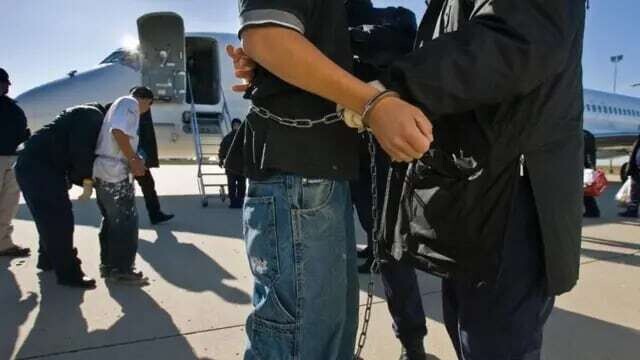
According to official figures, the Department of Homeland Security (DHS) of the United States reported that the average cost of arresting, detaining, and expelling an undocumented migrant amounts to $17,121 per person. In response to this situation, the DHS presented a new program that offers financial and travel assistance to undocumented migrants who choose to voluntarily return to their countries of origin through the CBP Home application. It is estimated that this initiative will reduce costs associated with forced deportations by 70%.
The new program aims to alleviate the pressure on the immigration system and reduce the high costs involved in forced deportations. Those who initiate the voluntary departure process will lose priority as candidates to be detained or expelled by immigration authorities, as long as they can demonstrate concrete progress in their repatriation.
This measure arises after the difficulty of the Donald Trump administration to meet its goal of carrying out 1,200 daily deportations, facing legal obstacles that have hindered the implementation of some of its executive orders, including the controversial Foreign Enemy Act, which is partially blocked in courts.
The first successful case under this scheme was that of a Honduran citizen who used CBP Home to manage his airfare ticket back from Chicago to Honduras. Each person who opts for self-deportation using the platform will receive a stipend of $1,000, which will be delivered once their return to their country of origin is confirmed.
DHS Secretary Kristi Noem described the measure as a "historic opportunity" for undocumented migrants and highlighted the importance of this initiative to expedite the voluntary return of those who are in an irregular situation in the United States.














